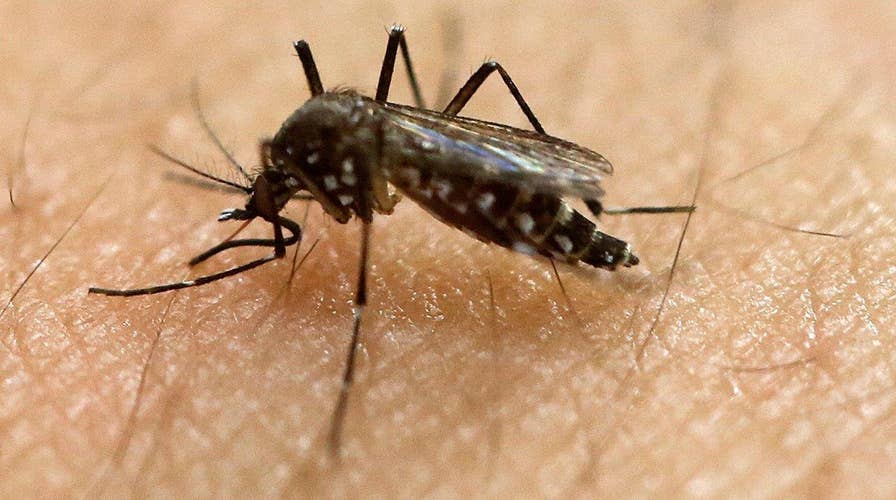Locally transmitted Zika cases climb in Florida
Dr. Manny Alvarez addresses growing concerns on 'Happening Now'
As Florida reports additional Zika infections from local mosquitoes, the Centers for Disease Control and Prevention (CDC) is advising pregnant women to avoid travel to a small section of Miami where active transmission is taking place. A CDC Emergency Response Team (CERT) has been activated to assist state health officials in stopping the spread of the dangerous virus.
Despite aggressive mosquito control efforts in Miami, public health officials are still finding high levels of Aedes aegypti mosquitoes, the species that most readily carries the Zika virus.
“In Miami, aggressive mosquito control measures don’t seem to be working as well as we would have liked,” said CDC Director Dr. Tom Frieden.
Frieden said scientists are looking into whether local mosquitoes have developed resistance to insecticides, whether the mosquitoes are breeding in small, hidden pockets of standing water or whether the complex urban environment makes conventional mosquito control difficult.
In addition to their advice to travelers, CDC officials are urging pregnant women and their partners who live or work in the affected area to take measures to avoid mosquito bites and prevent the sexual transmission of Zika. Such measures include spraying with DEET insect repellant and the use of condoms during sex.
Frieden said pregnant women who traveled to the area on or after June 15 should talk with their health care providers to be tested for Zika, even if they display no symptoms. Protecting pregnant women from Zika is of significant concern because the virus has been linked to microcephaly and other serious birth defects.
Today, Florida Gov. Rick Scott (R) announced that state health officials had identified 10 additional people who likely contracted the Zika virus through mosquito bites. This brings the total number of non-travel related Zika cases in Florida to 14.
Scott said six of the 10 new cases had no symptoms and were identified by a door to door survey that the Florida Department of Health (DOH) is conducting.
Despite the increasing number of cases, state health officials believe active mosquito transmissions of the virus are still limited to a one square mile area just north of downtown Miami.
Mosquitoes that carry Zika generally travel less than 150 meters (164 yards) over their lifespan. Frieden said Zika spreads by “hitchhiking” in the blood of human travelers who are bitten by infected mosquitoes in one location and then transfer the virus to mosquitoes in another location.
“Because four out of five (Zika) infections are without symptoms, it’s unlikely that we’ll ever know exactly who brought it in and where they brought it in from,” Frieden said. “That’s why it’s so important that anywhere in the U.S. there are Aedes aegypti mosquitoes pregnant women take steps to protect themselves.”
Florida is the first U.S. state in which local mosquitoes are believed to be transmitting the Zika virus. However, public health officials warn that additional cases, or small clusters of cases, are likely to appear in areas where Aedes aegypti mosquitoes are prevalent.









































